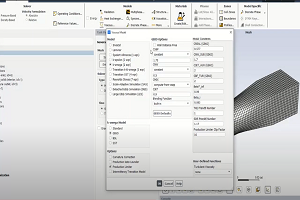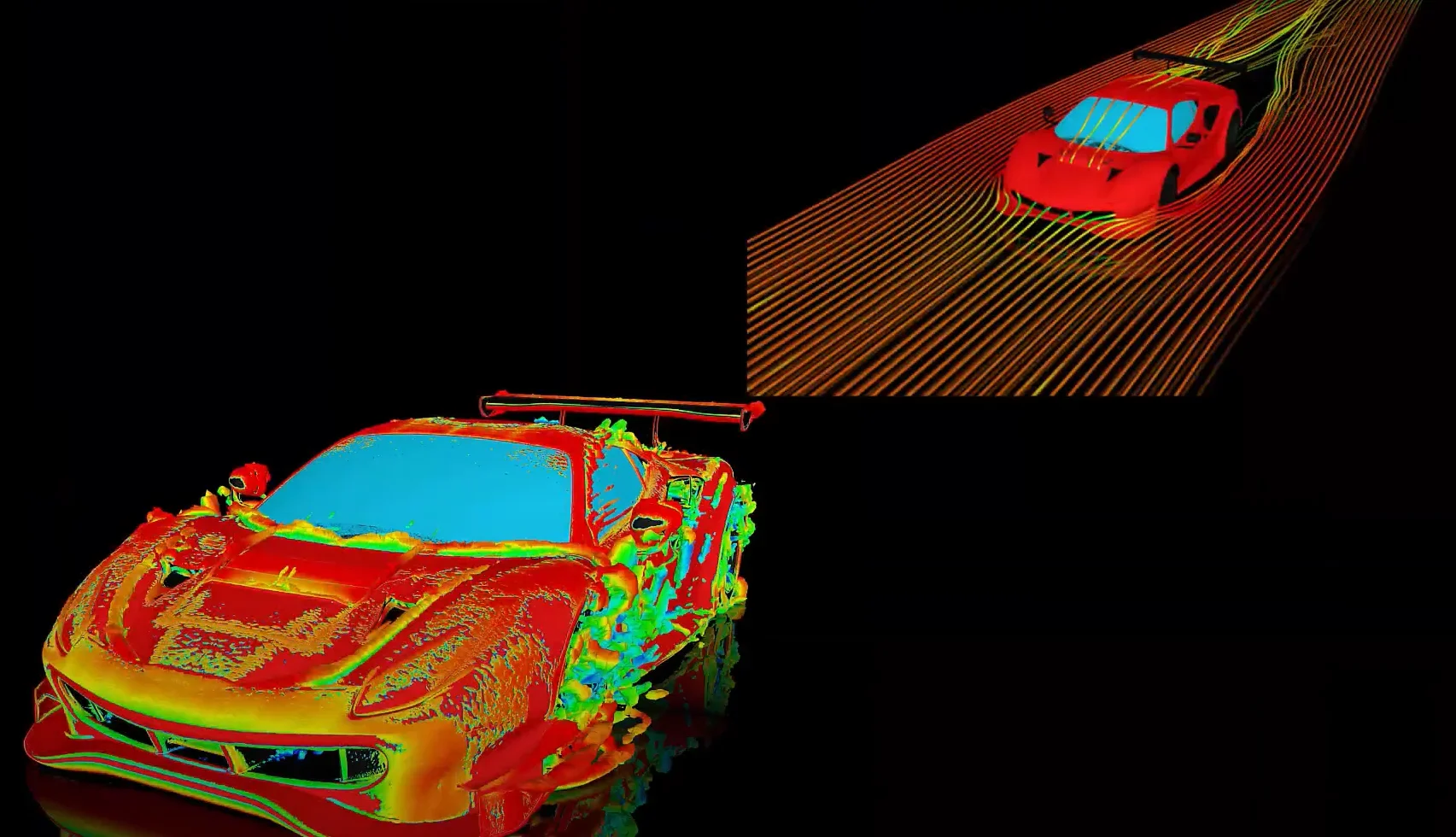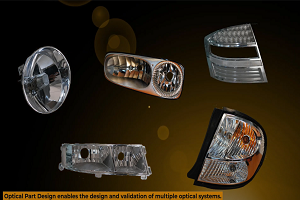Were there any changes to the format of the results databases (in particular the *.RTH and *.RST file) between 8.0 and 9.0?
-
-
March 17, 2023 at 8:59 am
 FAQParticipant
FAQParticipantThere was a major change to the results files at release 9.0; the entire file now uses 64 bit pointers. The addition of 64 bit pointers to the solution part of the results files at release 5.5 allowed for files larger than 2 Gb without file splitting and was believed, at the time, to be all that was required. It was assumed at the time that the front end of the file that contains the geometry would not need long pointers. That is the change at 9.0. If you are reading results files, it will be necessary to convert the pointers to long integer form. If you are writing results files, setting the release identifier to 8.0 will solve the problem in the short term. In the long term it will likely become necessary to convert the writing program to long integers. I am attaching 3 files for you. One identifies the differences. The other 2 are the documentation files for the results files for release 8.0 and release 9.0 The second change is the format of the nodes. Previously, the node record was a single record that contained all of the nodes and their coordinates. Beginning at 9.0, the nodes are written individually so the number of node records increased from 1 to the number of nodes. This is also because of the size of the geometry is now unlimited.
-


Introducing the GEKO Turbulence Model in Ansys Fluent
The GEKO (GEneralized K-Omega) turbulence model offers a flexible, robust, general-purpose approach to RANS turbulence modeling. Introducing 2 videos: Part 1 provides background information on the model and a...

Postprocessing on Ansys EnSight
This video demonstrates exporting data from Fluent in EnSight Case Gold format, and it reviews the basic postprocessing capabilities of EnSight.

Introducing Ansys Electronics Desktop on Ansys Cloud
The Watch & Learn video article provides an overview of cloud computing from Electronics Desktop and details the product licenses and subscriptions to ANSYS Cloud Service that are...

How to Create a Reflector for a Center High-Mounted Stop Lamp (CHMSL)
This video article demonstrates how to create a reflector for a center high-mounted stop lamp. Optical Part design in Ansys SPEOS enables the design and validation of multiple...

Introducing the GEKO Turbulence Model in Ansys Fluent
The GEKO (GEneralized K-Omega) turbulence model offers a flexible, robust, general-purpose approach to RANS turbulence modeling. Introducing 2 videos: Part 1 provides background information on the model and a...

Postprocessing on Ansys EnSight
This video demonstrates exporting data from Fluent in EnSight Case Gold format, and it reviews the basic postprocessing capabilities of EnSight.

Introducing Ansys Electronics Desktop on Ansys Cloud
The Watch & Learn video article provides an overview of cloud computing from Electronics Desktop and details the product licenses and subscriptions to ANSYS Cloud Service that are...

How to Create a Reflector for a Center High-Mounted Stop Lamp (CHMSL)
This video article demonstrates how to create a reflector for a center high-mounted stop lamp. Optical Part design in Ansys SPEOS enables the design and validation of multiple...

- How to deal with “”Problem terminated — energy error too large””?”
- How do I request ANSYS Mechanical to use more number of cores for solution?
- Contact Definitions in ANSYS Workbench Mechanical
- How to restore the corrupted project in ANSYS Workbench?
- The LS-DYNA equivalent of *MODEL_CHANGE card (in ABAQUS). Which keywords can be used to introduce(activate)/delete(deactivate) elements in the middle of a calculation (at user-specific time/load steps).
- There is a unit systems mismatch between the environments involved in the solution.
- How to resolve “Error: Invalid Geometry”?
- How to transfer a material model(s) from one Analysis system to another within Workbench?
- After Workbench crashes, how can I recover the project from a .mechdb file?
- Model has a large number of contacts – how to reduce them?

© 2025 Copyright ANSYS, Inc. All rights reserved.

